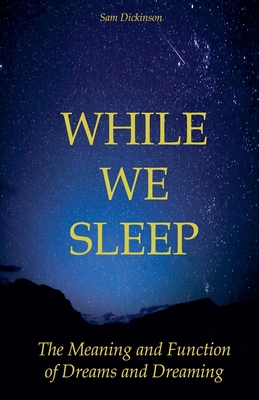While we Sleep The Meaning and Function of Dreams and Dreaming

While we Sleep The Meaning and Function of Dreams and Dreaming
Whether you remember them or not, dreams are a normal part of sleep. Everyone dreams for a total of about two hours per night, and dreams can occur during any stage of sleep, although they're most vivid during the REM phase. Suppose you've ever woken up from a happy dream feeling relaxed and rested or a scary one feeling on edge. In that case, you might have wondered whether the content of your shut-eye reveries can make a difference in your overall sleep quality.
Dream content often relates back to what's happening in your waking life. If you're experiencing low stress and plenty of satisfaction in your day-to-day life, you may have more positive dreams. By contrast, if you're depressed or anxious during the day, you may have more unpleasant dreams and compromised sleep quality at night.
The good news is that while you cannot control your dreams directly, you can work on improving your state of mind during the day.
This book investigates theories concerning the function of dreams and dreaming, starting with the contributions made by Freud to the present day. Several ideas within psychodynamic, evolutionary, and neurocognitive perspectives are presented and discussed in light of relevant empirical research. These include theories that postulate that the function of dreaming is to guard sleep and approaches which propose that dreaming poses an adaptive advantage either by allowing for the simulation and rehearsal of threat avoidance behaviors, practicing social skills, solving emotional or intellectual problems, or aids us in the consolidation of memories.
PRP: 90.85 Lei
Acesta este Pretul Recomandat de Producator. Pretul de vanzare al produsului este afisat mai jos.
77.22Lei
77.22Lei
90.85 LeiLivrare in 2-4 saptamani
Descrierea produsului
Whether you remember them or not, dreams are a normal part of sleep. Everyone dreams for a total of about two hours per night, and dreams can occur during any stage of sleep, although they're most vivid during the REM phase. Suppose you've ever woken up from a happy dream feeling relaxed and rested or a scary one feeling on edge. In that case, you might have wondered whether the content of your shut-eye reveries can make a difference in your overall sleep quality.
Dream content often relates back to what's happening in your waking life. If you're experiencing low stress and plenty of satisfaction in your day-to-day life, you may have more positive dreams. By contrast, if you're depressed or anxious during the day, you may have more unpleasant dreams and compromised sleep quality at night.
The good news is that while you cannot control your dreams directly, you can work on improving your state of mind during the day.
This book investigates theories concerning the function of dreams and dreaming, starting with the contributions made by Freud to the present day. Several ideas within psychodynamic, evolutionary, and neurocognitive perspectives are presented and discussed in light of relevant empirical research. These include theories that postulate that the function of dreaming is to guard sleep and approaches which propose that dreaming poses an adaptive advantage either by allowing for the simulation and rehearsal of threat avoidance behaviors, practicing social skills, solving emotional or intellectual problems, or aids us in the consolidation of memories.
Detaliile produsului









